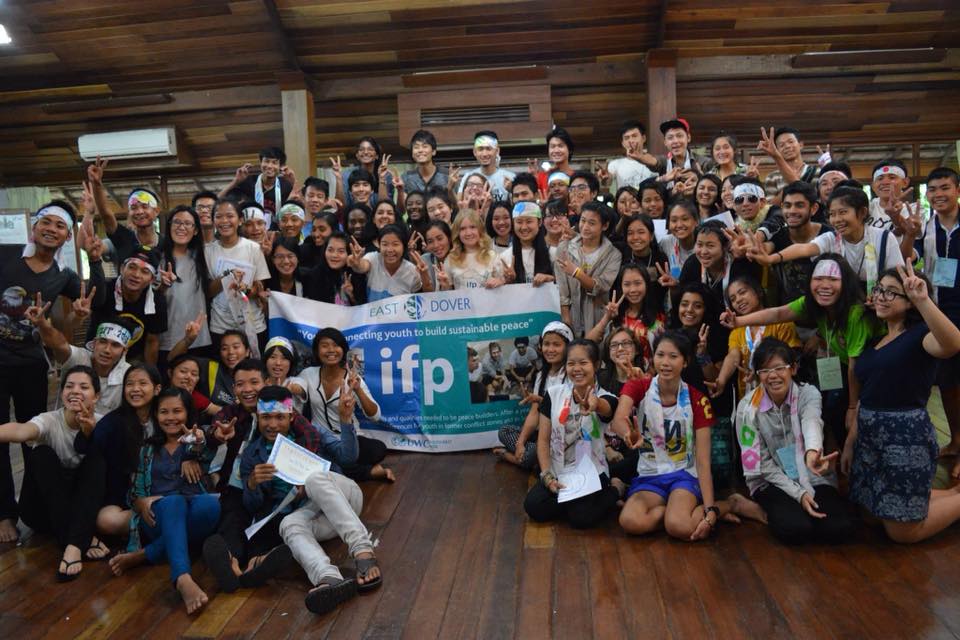By Kim Chham

Let’s say we all accept the term global citizenship and identify with it. Our community will be the community, for all – since we all belong to this world. Therefore, we are citizen of every place of this world. Granted, this is an interpretation of this term that I came up with, not the definition. Then there wouldn’t be ‘us’ vs. ‘them’ or ‘ours’ vs. ‘theirs’. That’s probably one good thing about identifying with this term, but the world is much more complicated than that (as I’ve learned) and having only one community still wouldn’t eliminate all the issues we have now. However, it would eliminate the conflicts of entering someone else’s community and crossing borders.
Because not everyone will agree with this interpretation and identify with this term, and even know or has heard of this term, the issues of individual communities would still remain. The act of crossing into someone else’s community still creates issues.
Sitting in a room with 15 other young people and various experts from the peacebuilding field, we ask ourselves: who are we to go into someone else’s community to build peace? Do we truly understand the issues or the conflicts? Are we able to really understand them without living in those communities? If the answer is yes, should we believe ourselves?
On the other hand, isn’t it morally wrong to stay out of conflicts when you have the potential to help? Isn’t it wrong to watch a country or community diminish without trying to help? Even when some countries call out to international communities to help, are we actually helping by providing aids or mediations? What does the word ‘help’ actually mean? Who holds the power of the action of helps? And is it sustainable?
My next steps of thought – more questions – if the answers to the above questions are yes, it is morally wrong to not help to build peace. Then do we really need to understand the environment as much as a local to step in, to act? Some situations are hostile. People are being killed. Do we lead our doubts of lack of local knowledge stop us from acting? For me to move forward as a peacebuilder, these questions are essential for me to find answers to, or at least come to peace with.
Here are some of my thoughts to these questions, as of this moment.
I think one should take action rather than standing by to watch just because we don’t think we know enough. Having said that, it is very important to keep in mind that we don’t know best and we need to respect the knowledge of locals. Again, coming back to the concept of global citizenship. Once we’ve accepted that this world is ours and we all play an important role in it, it becomes our moral obligation to take actions, to do whatever we can do sustain it. I also think that once we are all there, we will value working together more because this is a big world and there are a lot of issues in it that we can not solve without collaboration.
So, should one go into someone else’s community to build peace?
The answer would depend on whether we accept the term global citizenship or not.


